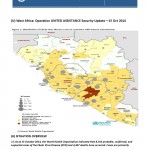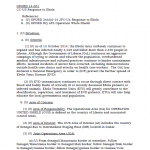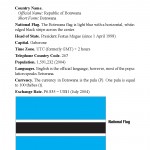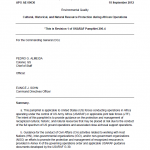
A collection of recent intelligence summaries for Operation United Assistance which is being conducted by U.S. Africa Command through U.S. Army Africa. The operation began in September and provides “coordination of logistics, training, and engineering support to the U.S. Agency for International Development (USAID) in West Africa to assist in the overall U.S. Government Foreign Humanitarian Assistance/Disaster Relief efforts to contain the spread of the Ebola Virus/Disease, as part of the international assistance effort supporting the Governments of Liberia, Sierra Leone and Guinea.”



